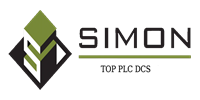DCS controller ABB GE HOENYWELL EMRESON TRICONEX
A controller is a device used to control or regulate mechanical, electrical, and other systems, typically implemented using technologies such as intelligent chips, program control, and sensors. It is widely used in industrial automation, home appliances, automotive electronics, and other fields, and is an indispensable key component in modern production and life.
Main classification of controllers
The classification of controllers can be based on different criteria, including:
By application field: household electrical controllers, automotive electronic controllers, industrial automation controllers, etc;
By function: temperature controller, humidity controller, pressure controller, flow controller, etc;
According to control methods: switch type controller, analog type controller, digital type controller, etc;
Control objects include motion controllers, robot controllers, motor controllers, etc.
Working principle of the controller
The working principle of the controller involves sensor data acquisition, intelligent chip information processing, and logical operations, ultimately outputting control signals to achieve control or adjustment of the target device. Sensors collect environmental information, intelligent chips process and analyze data, and control circuit output signals to control equipment.
Basic functions of the controller
The basic functions of the controller include:
Data collection: Collect data information around the device through sensors and other devices;
Data processing: Process, analyze, and perform logical operations on the collected data to generate control strategies;
Control output: According to the control strategy, output control signals to achieve equipment control and adjustment;
Status feedback: Collect device status information through sensors and other devices, provide feedback to the controller on the device’s working status, and perform corresponding processing and adjustment.
In summary, controllers are an indispensable and important component in modern production and daily life. It has diverse classifications and wide applications. Through continuous innovation and development, the functions of the controller have gradually become stronger, which can meet more complex control and adjustment needs, providing people with convenient and efficient production and life experiences.
